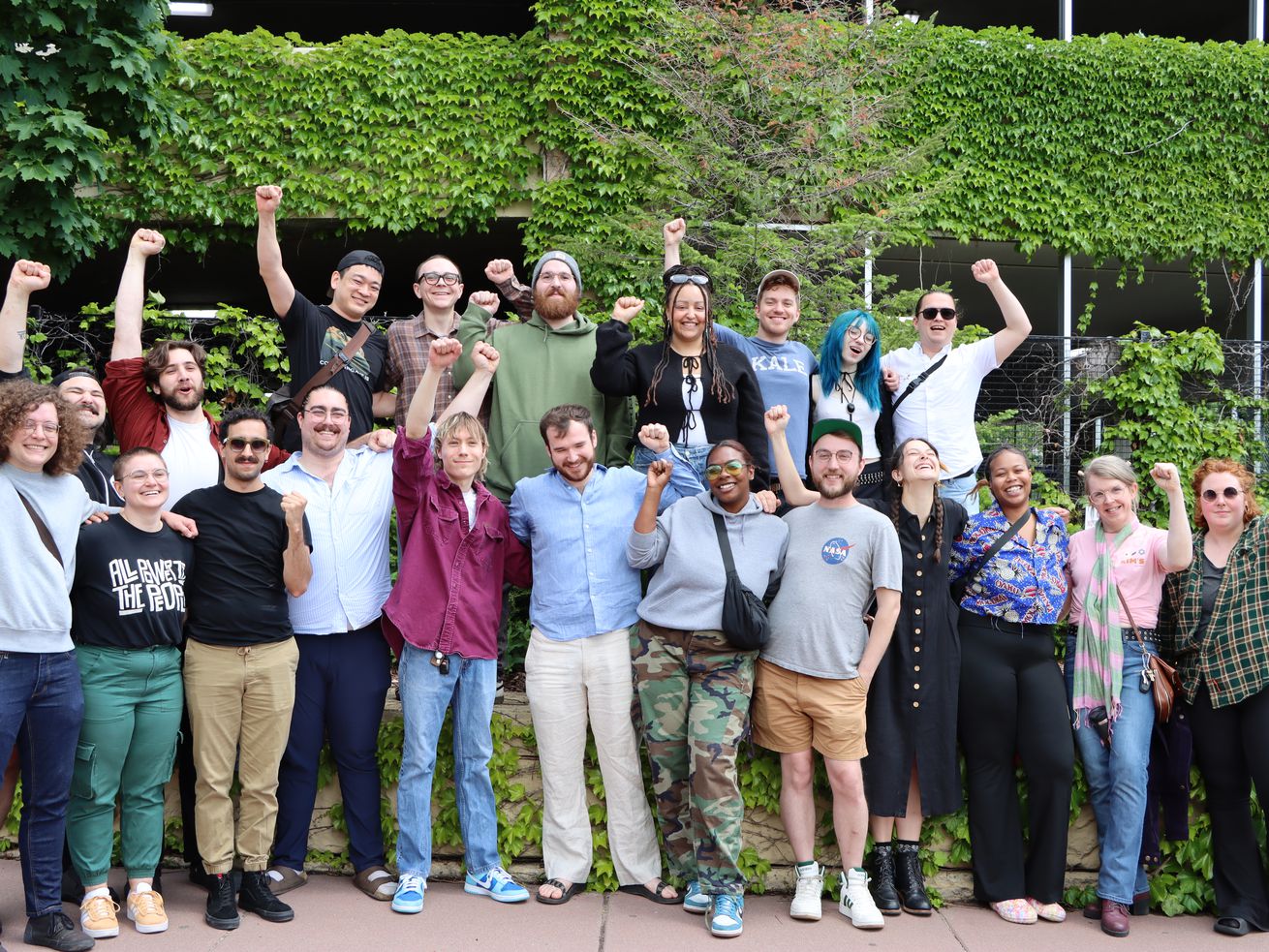
Minnesota landmark: The Frank Schott stone barn near Chokio
May 29, 2024
Here’s Why Workers Are Pushing to Unionize at Kim’s
May 29, 2024Three Black men have filed a lawsuit against American Airlines alleging they were victims of “blatant and egregious racial discrimination” after being removed from a flight.
In a lawsuit filed in federal court Wednesday, the three plaintiffs — Alvin Jackson, Emmanuel Jean Joseph and Xavier Veal — say that they and five other Black male passengers were removed from an American Airlines flight from Phoenix to New York’s John F. Kennedy International Airport in January “without any valid reason, based solely on their race.”
The eight men did not know each other and were not seated together on the flight.
According to the lawsuit, an American Airlines representative approached each of the eight men and told them to leave the plane and return to the gate in order to be rebooked.
“In fact, once they reached the jet bridge, they saw that several other Black men were also being removed from the plane. In fact, it appeared to Plaintiffs that American had ordered all of the Black male passengers on Flight 832 off the plane,” the lawsuit says.
Once all eight men were off the plane, they eventually discovered the reason behind their removal — an employee told the men someone on the plane complained about body odor. Jackson, Joseph and Veal say they were not told they had body odor, according to the lawsuit.
When the three men pointed out that they were being treated unfairly due to their race, an American Airlines staff member said she “did not disagree,” the lawsuit says.
All eight men were eventually allowed back on the plane nearly an hour after the airline determined there were no available flights going to JFK airport that evening.
“Plaintiffs then had to reboard the plane and endure the stares of the largely white passengers who viewed them as the cause of the substantial delay. They suffered during the entire flight home, and the entire incident was traumatic, upsetting, scary, humiliating, and degrading,” the lawsuit reads.
In a statement to NPR, American Airlines said it takes all claims of discrimination "very seriously" and wants customers to have a "positive experience" when they fly with it.
"Our teams are currently investigating the matter, as the claims do not reflect our core values or our purpose of caring for people," the airline said.
Jackson, Joseph, and Veal say what happened to them was "wrong," and they say their experience flying with the airline left them embarrassed and humiliated.
“Imagine a flight attendant ordering every white person off a plane because of a complaint about one white person. That would never happen. But that is what happened to us," the three men said. "There is no explanation other than the color of our skin … clearly, this was discrimination."
The lawsuit is the latest in a string of recent incidents in which the airline has faced allegations of racial discrimination.
In February, a Chicago woman says she was discriminated against after a flight attendant allegedly confronted her after she used the plane’s first-class restroom.
Pamela Hill-Veal, who is Black, says that while she and her family were flying first class on Feb. 10 from Chicago to Phoenix, one of the American Airlines flight attendants stopped her as she returned to her seat — and accused her of slamming the restroom door.
"The flight attendant stopped me as I was returning to my seat and told me I 'slammed the restroom door and I was not to do it again since passengers were sleeping on the plane,'" Hill-Veal said in an interview with NPR. She said she never slammed the door.
In a statement to NPR, American Airlines said it had been in contact with Hill-Veal to learn more about her experience.
"We strive to ensure that every customer has a positive travel experience, and we take all claims of discrimination very seriously," the airline said.
When asked whether it was considering changes in training or policy for its staff, the airline did not respond.
In 2023, the company drew criticism after two separate incidents — one involving track star Sha'Carri Richardson and another involving musician David Ryan Harris — made headlines.
Richardson was forced off her American flight following an argument with a flight attendant. Richardson said the flight attendant was harassing her and trying to intimidate her, Axios reported.
In a statement to Axios, the airline said it investigates all claims of discrimination, adding, "American Airlines strives to provide a positive and welcoming experience to everyone who travels with us, and we take allegations of discrimination very seriously."
And, in September of that year, Harris, who was traveling with his two biracial children, says he was stopped and questioned at Los Angeles International Airport after an American Airlines flight attendant suspected he was trafficking the children.
After the incident, Harris posted a statement that he says was given to him by American: "We and our flight attendant realized that our policies regarding suspected human trafficking were not followed, and through coaching and counseling … our flight attendant realizes that their interaction and observations did NOT meet the criteria that human trafficking was taking place.
Concerns about discrimination have followed American for several years. In 2017, the NAACP, the nation's oldest civil rights organization, issued an advisory warning Black travelers to be cautious about flying on American Airlines.
The airline's chairman responded by saying the company does not "and will not tolerate discrimination of any kind," and the advisory was lifted the next year.
Derrick Johnson, president and CEO of the NAACP, told NPR that the details in the latest lawsuit filed are “disturbing.” He encourages the Black community to continue to “stand up and speak out” against discrimination.
"Let’s be clear – traveling while Black should not be characterized by humiliation and disparate interruptions. While we recognize a brand’s ability to evolve beyond mistakes of the past, part of that evolution includes continued accountability for any deviation from core values," Johnson said.
Copyright 2024 NPR




